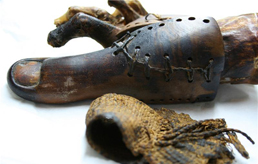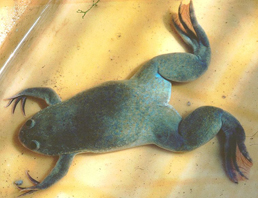Podcast for 8 April 2011
Football and family violence, rooting out insects, a question of taste, and a bird's eye view for danger.


Football and family violence, rooting out insects, a question of taste, and a bird's eye view for danger.

A new generation of self-conscious robots, how sunshine affects drugs in the body, new research into the prevention of cleft lips, why it's hard to stay focused for long periods of time, and what sound recordings can tell us about the health of natural habitats.

An early screening test for autism, a car controlled by thoughts, the safety of fruit seeds, blaming the hero, and testing an ancient Egyptian prosthetic.

Scientists have estimated the total amount of information transmitted and stored by humans.
Brain development in the first year of a baby's life set us apart from our extinct Neanderthal relatives.
Scientists have found a previously undiscovered meteorite impact crater using Google Earth.

AIR & SPACE: The moon is shrinking - slowly, astronomers discover a solar system similar to our own, exploring the moons of Jupiter, how satellite-based mapping programs can help during natural disasters, and why clouds have distinct borders.
An engineering design technique can help surgeons reconstruct the delicate bones of the face.
CUTTING-EDGE MEDICINE: Re-growing joints and re-constructing faces, the link between gut bacteria and multiple sclerosis, and octopus venoms that could treat pain.
The cat's lightning-fast hunting instincts of inspire new computer circuit design.
ANIMAL UPDATE: Birdsong in the genes, hummingbirds and heliconias, a more environmentally friendly pig, and cat-inspired computer circuits.
Our social networking profiles are surprisingly accurate reflections of our true personalities.
Scientists have successfully transmitted information from one brain to another.
